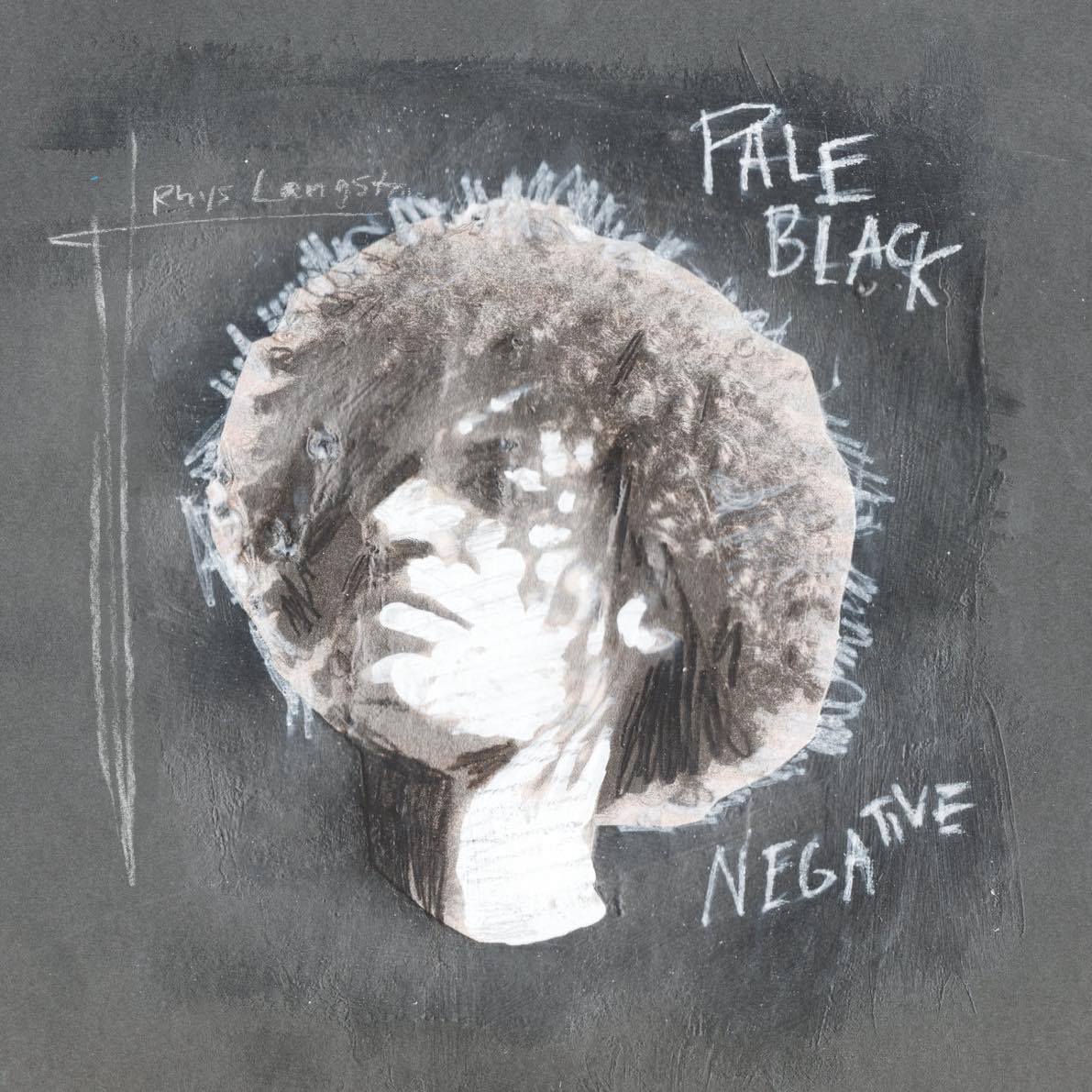Rhys Langston
Pale Black Negative
BLACK MARKET POETRY/FUSED ARROW
Rhys Langston is a self-proclaimed genre abolitionist—a very accurate title, if you’re familiar with even a portion of his 20-project catalog. From the punk-rock propensities of 2021’s Stalin Bollywood to the amalgamation of electro-psych, stardust hip-hop, and clarinet on the Pioneer 11 collaboration To Operate This System in 2023, the LA-based polymath has never been one to be held down by genre conventions (hell, Langston isn’t even constrained by medium, having released multiple written works to accompany his albums and has regularly showcased his poetry and artwork through various channels). This year, Langston has put together his most comprehensive foray into genre abolition yet: Pale Black Negative is a whirlwind of artistic exploration, spanning from spoken word over bass licks to banjo-backed blues in what might be the most intimate look we’ve had to date into the mind of the vassal to the Estate of the Lord Chocolate Davis on the land of Langstónia.
Referred to by its creator as “a rapper’s singer-songwriter record,” Pale Black Negative truly defies the conventions we’ve come to expect from hip-hop in just about every way possible. In the liner notes, Langston details his frustration with so-called “experimental” and “alternative” acts championed today, whose music seems to still be “coloring inside the lines (just different ones).” Pale Black Negative refuses to acknowledge even the concept of lines. Take “Psychic Rhyming Like Kings Shining,” for instance. The track begins with a rush of static before a collage of drums, angelic synths, and eerie clarinet eke out behind a slick-tongued Langston. After the state department taps into the MIDI, the song warps into the psychic rhyming of Andrew Mbaruk, who questions reality’s foundation before stepping out of rhyme. The texture of the track alone borders on absurdity.
If all of Pale Black Negative followed the aesthetic sensibilities of “Psychic Rhyming,” the record would be fairly contained. But Langston refuses to play by the rules. Four tracks later, the blues-inspired “It Jes Grew (Right Outta Me)” begins with a banjo lick before Langston showcases his iconic linguistic eccentricities. Later, over that same banjo grounding the chorus, he repeatedly sings the titular phrase inspired by the freedom virus spread by Black artists in Ishmael Reed’s Mumbo Jumbo. The outro features a clarinet solo underneath a collection of samples wherein close friends and family talk about their hair. As Langston told us when the song was released as a single, “It Jes Grew” is “an ancestrally connected piece about hair, whirling through many sonic and historical references and spaces.” From the bayou guitar to Reed’s literary influence, Langston carves his own “throughline in the continuity of Black diasporic music” and art, and in doing so continues to draw well outside of the lines.
Perhaps the most intimate moment on the record immediately follows, titled “Chancla Gander (a Spiritual for Moziah).” In the liner notes, Langston explains that the death of his cousin Moziah, who would provide Langston with the “gigabytes of samples” that kickstarted his production journey, catalyzed a shift in both his musical and conceptual focus. On the track, he delves into a reminiscence of his beloved relative, whose gumption and passion led Langston to lovingly compare him to revolutionaries like Emiliano Zapata and Marcus Garvey. The spiritual strikes right at your soul, serving as a touching tribute to an individual whose importance to Langston’s art and life cannot be overstated.
Pale Black Negative is truly the most impressive endeavor to originate from the shores of Langstónia to date. Written, composed, performed, produced, and mixed by Langston—complete with vocals, percussion, samples, bass, acoustic and electric guitar, synth, banjo, and clarinet compositions—and released via his own Black Market Poetry label utilizing original cover art, it’s a tour de force in every sense.







